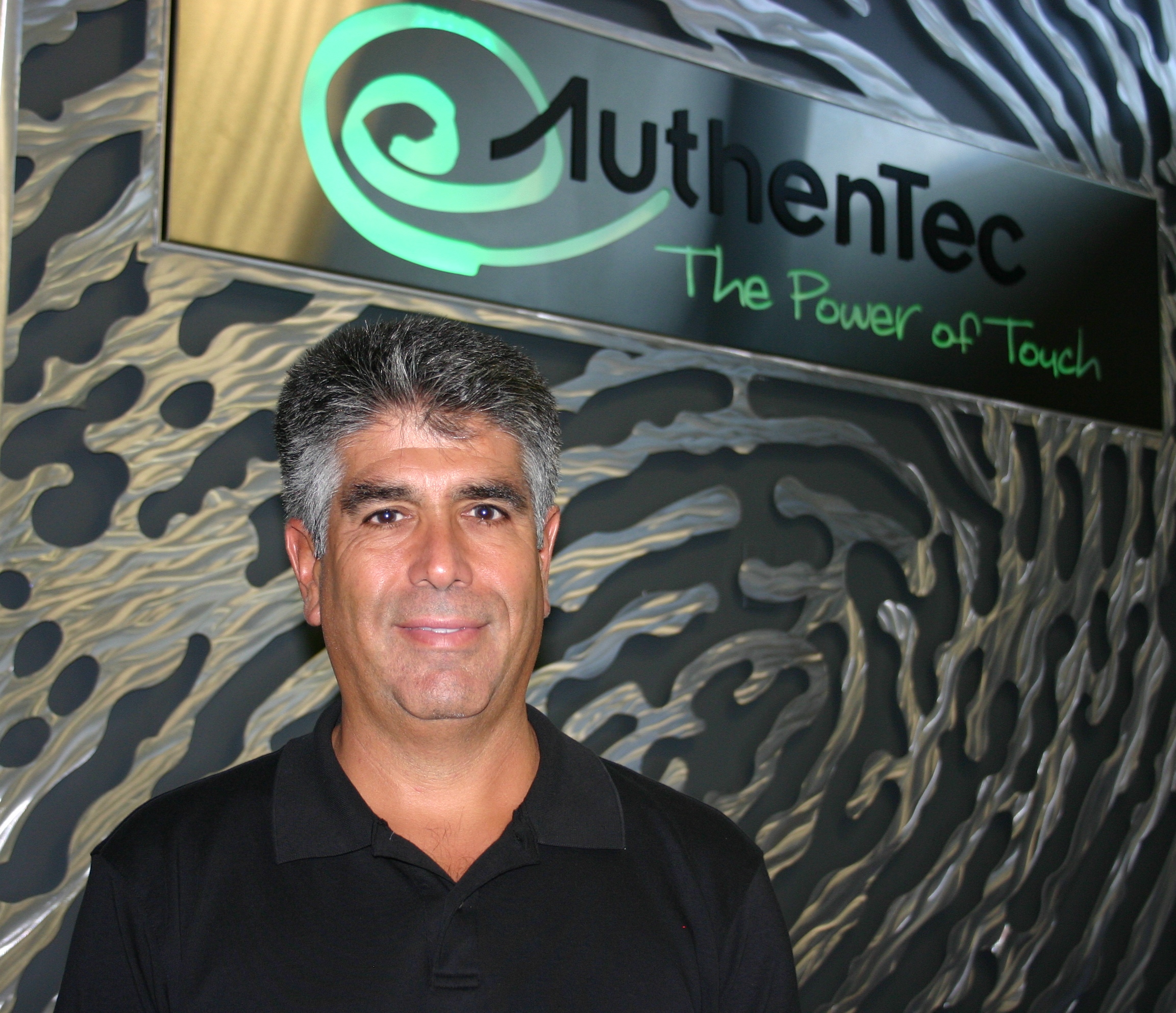Larry Ciaccia: Envisioning a Password-Free World
Imagine: There’s no need to remember a password to access your bank, email or social media accounts yet your information is as secure as ever. This is not a theoretical technology of the future, but only about 10 percent of notebook PCs shipped in the world today have this capability—fingerprint ID.
AuthenTec CEO and alumnus Larry Ciaccia ’83 MBA would like to see that change and has spent his work-life laying the foundation.
Reveling in a successful, fast-paced career spanning more than 30 years, Ciaccia now welcomes the opportunity to explore a new path. Apple’s purchase of the Melbourne, Fla.-based AuthenTec in October 2012 for $356 million provides the opportunity to switch gears—or not.
“I can’t comment on Apple’s plans, but if there is any company that can take AuthenTec technology to the next level, Apple can certainly do it,” he said. Ciaccia is excited about that next level: mainstream biometrics, that is, most people using fingerprint sensing rather than passwords for their communication devices.
He has been involved in the technology to make this possible since he arrived in 1980 at Harris Corp.’s Semiconductor Division. As a leader in pioneering the wireless business—helping name and develop the emerging technology known today as Wi-Fi—he is no stranger to revolutionizing a market through technology.
“To literally make and market what didn’t exist before, and is now ubiquitous, was a great opportunity,” he said.
In 2005, Ciaccia was invited to join AuthenTec, a company with its roots at Harris that began as a provider of a sensor that could create clear electronic images of a person’s fingerprint using semiconductor technology. After a working prototype was created, AuthenTec spun off from Harris, continued to evolve its technology and eventually went public in an IPO in 2007.
Three years later, Ciaccia became AuthenTec CEO.
The company refined it’s touch-type sensors and later introduced swipe-type sensors, in which a user simply slides a finger across a much smaller sensor area. This makes the sensor more compact, less expensive and more attractive to notebook manufacturers and mobile phone companies seeking convenience and value-added security.
An acquisition brought the company a large portfolio of encryption technology to help protect mobile and network devices, and a merger the same year added large-area touch sensors for government access control.
The company has gone global with development centers added in the Netherlands, Czech Republic, China and Japan. Today, at its Melbourne headquarters, about a half dozen of the 70 staff members are Florida Tech alumni.
Guiding the company during its dizzying years of growth, Ciaccia, with the luxury of now considering options, said, “The job here has been all-encompassing. I’m looking forward to having a life more in balance.”
On his agenda is getting more involved in the community. He’s also an avid sport and offshore fisherman and a big Florida Gator football fan. So, there might be more time for that. And he is following what is happening with fledgling Florida Tech football.
“Florida Tech has changed so much. I’ve watched it grow culture- and athletics-wise and it has certainly broadened its appeal.”
Planning to enjoy a little more personal time, however, doesn’t mean he’s not still enraptured by biometric sensors.
“The idea of using your fingerprint instead of a password can instantly change a market and most people aren’t even aware of the technology, yet. We’re all strong believers here (at AuthenTec) and we use it ourselves,” he said.
Karen Rhine
Beyond the P@55WørD
The December issue of Wired featured an article on password failure and the future of online security—where a password, combined with biometrics, combined with two-factor authentication, such as a login that prompts a text to your phone with a code to continue, might prevail. Apple’s purchase of AuthenTec was noted in the article.





